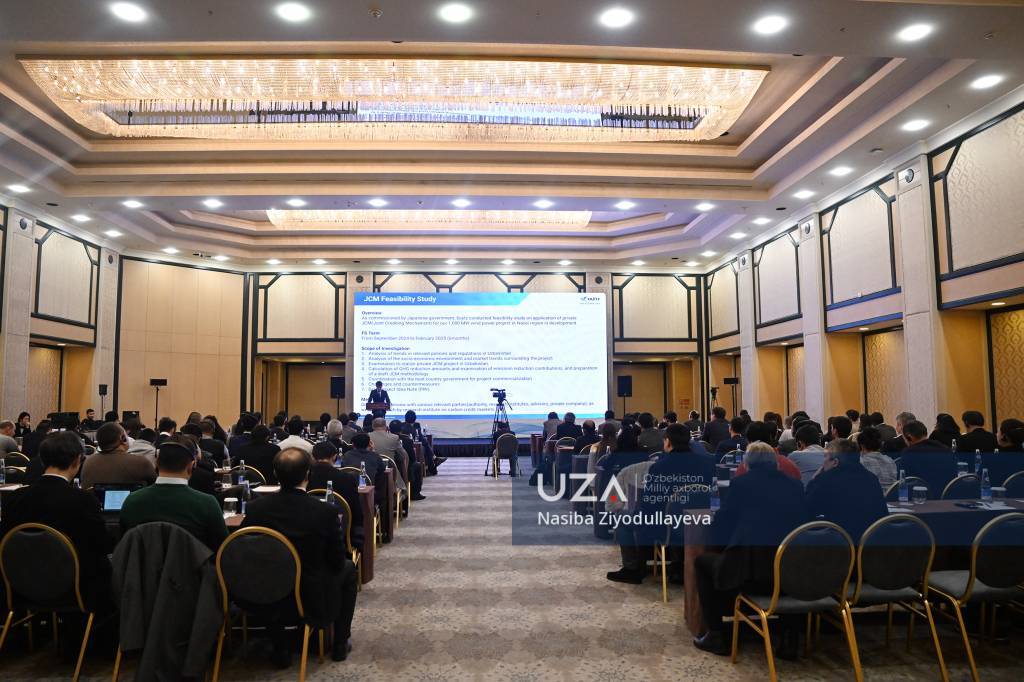
Tashkent hosted a seminar on “Joint Crediting Mechanism (JCM) Opportunities in Uzbekistan”.
The Ministry of Economy and Finance organized the event in collaboration with the Japan Overseas Environmental Cooperation Center. It was attended by representatives from the Japanese Government, leading Japanese companies in producing renewable energy and clean technologies, local ministries and agencies of Uzbekistan, large industrial enterprises, energy system organizations, representatives of the private sector, and research institutes.
The Deputy Minister of Economy and Finance, Umid Obidkhojayev, and Japan’s Ambassador to Uzbekistan, Takashi Hatori, emphasized that mutually beneficial relations between the two countries are key to achieving green economic growth.
The Governments of Uzbekistan and Japan have been working together to reduce greenhouse gas emissions by implementing green projects within the framework of Article 6 of the Paris Agreement. This cooperation is becoming increasingly relevant, especially against the backdrop of the declaration of 2025 as the Year of Environmental Protection and the Green Economy in Uzbekistan.
Joint Crediting Mechanism (JCM) is a cooperation system for attracting modern Japanese technologies or covering part of the project costs, depending on the type and conditions of the project, in exchange for a particular share of greenhouse gas emissions reduced within the framework of JCM projects in developing countries.
The main goal of this seminar is to support entrepreneurs in transition to a green economy through the JCM mechanism, attract advanced green technologies from Japan, and create an opportunity for B2B negotiations between Japanese and Uzbek companies.
During the seminar, presentations were made on the Japan JCM Foundation, the basics of the JCM scheme, the procedure for developing a JCM project for local companies, foreign experiences, and projects implemented within the framework of JCM.
[gallery-22003]
Nasiba Ziyodullayeva, photos by Nosirjon Haydarov, UzA








